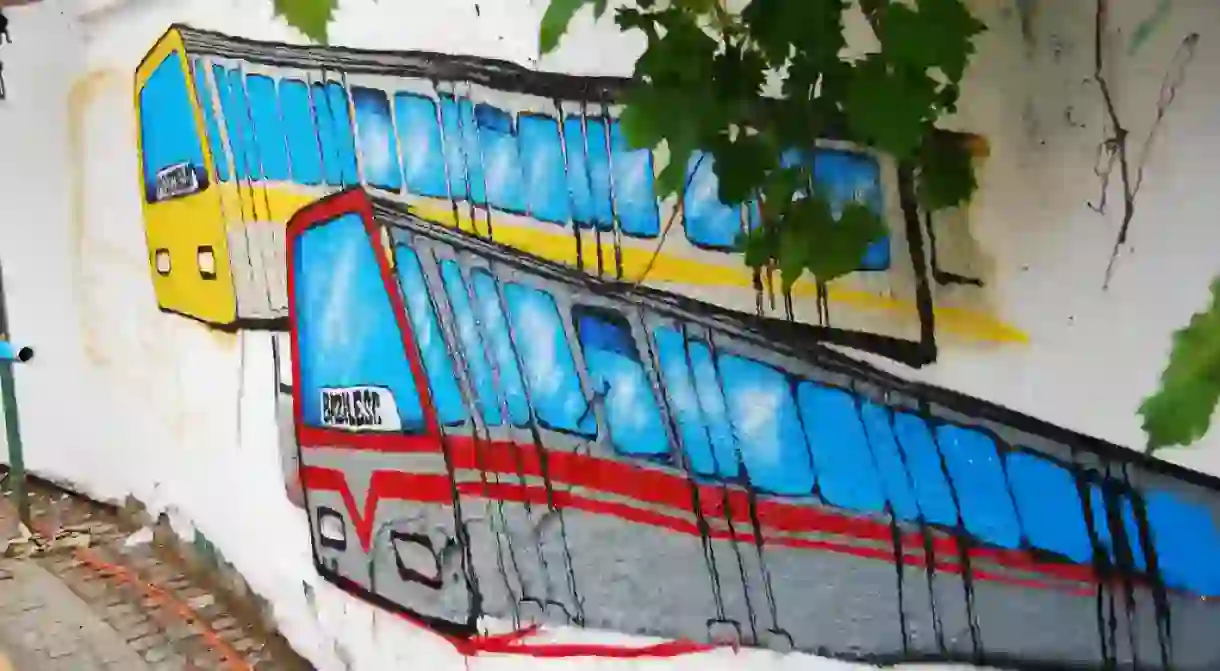10 Essential Romanian Phrases You Need to Know

While a lot of Romanians, especially those you meet in large cities, will be able to converse in English, everyone will invariably welcome every attempt at speaking Romanian with a smile. Give this Latin language a go with these 10 essential phrases.
‘Bună dimineața /Bună ziua/Bună seara’ (Boo-nuh dee-mee-nea-tza/Boo-nuh zi-ua/Boo-nuh sea-ra)
Meaning: Good morning/Hello/Good evening
In Romania, formal conversations commonly start with ‘Buna ziua’, which, although translates literally as ‘Good day’, is meant as hello and used as a basic greeting. A shorter, more colloquial version of the greeting is ‘Buna’, which can be used when meeting acquaintances and friends.

‘Ce mai faci?’ (Che mai fatch?)
Meaning: How are you?
Another typical greeting is ‘Ce mai faci?’ which can be used to greet friends and acquaintances. When addressing elderly people, or when meeting someone for the first time in a formal setting, a more polite form is used, namely ‘Ce mai faceti?’ Bear in mind though, that if you pronounce it too confidently, the answer could overwhelm you, as your companion might reply with a lengthy answer in Romanian!
‘Da/Nu’ (Dah/Noo)
Meaning: Yes/No
When saying ‘Da,’ say it with a nod to make it more convincing. When saying ‘No’, shake your head to the left, then quickly to the right, and you will convey a stronger message.

‘Mulțumesc!/Cu plăcere’ (Mool-tzu-mesk/Koo pla-che-reh)
Meaning: Thank you!/You’re welcome
Mulțumesc is used to express appreciation on all occasions. If particularly grateful, then ‘Mulțumesc mult’ (Thank you very much) or ‘Mulțumesc frumos,’where ‘frumos’ means ‘beautiful,’ is used. The typical answer is ‘Cu placere’, or, if the other wants to show enjoyment, he or she will say ‘Cu mare placere’, meaning ‘It was a great pleasure.’
‘Cum te cheamă?/Cum vă numiți?’ (Koom-teh-kyahm-uh/Koom va-nu-mitsi)
Meaning: What is your name?
‘Cum te cheama’ is used when addressing someone of a young age, while an older person should be asked using a more formal expression, namely ‘Cum va cheama’, or ‘Cum va numiti.’ As per custom, Romanians shake hands when introducing themselves and follow up with ‘Imi pare bine’, meaning ‘Nice to meet you’.

‘Pardon/Scuzați-mă/Nu vă supărați’ (Par-dohn/Sku-za-tsi-mah/Nu vah su-pah-ratsi)
Meaning: Excuse me/I beg your pardon
Whether you are trying to make your way through the crowds at one of Romania’s many summer festivals, on the ski slope, or when riding public transport, the things to say are ‘Pardon’ or ‘Scuzați-mă’. When asking a total stranger for directions, it is common courtesy to start with ‘Nu vă supărați’, then, upon receiving permission, ask away.
‘Vorbiti engleză/franceză/italiană?’ (Voor-bitsi en-gle-zah/fran-ce-zah/ita-li-a-nah)
Meaning: Do you speak English?/French?/ Italian?
There’s only that much you can achieve with Romanian as a first time traveler to the country. That is why, when things get tough and you start looking for someone who is fluent in a language you know, you can use the sentence above.
‘Noroc/Sănătate’ (No-rok/Sah-nah-ta-teeh)
Meaning: Cheers!
When toasting, raise your glass and say either ‘noroc’, meaning ‘good luck’, or ‘sanatate’, which means ‘health’, and you are sure to impress the audience.

‘Cât costă?’ (Cat kos-tah)
Meaning: How much does it cost?
You will use this one often at peasant markets and fairs, which are always a good placeto try local food and drinks, as well as practice pretty much all phrases you learned in this article.

‘La revedere!/Pe curand’ (La re-ve-de-reh/Pe cu-rand)
Meaning: Goodbye!/ See you soon













